- Home
- M. L. Buchman
Keepsake for Eagle Cove Page 5
Keepsake for Eagle Cove Read online
Page 5
And he led her far out onto the lawn past the glow from the cherry tree’s twinkle lights. Then the two indistinct shadows became one and they began to dance ever so slowly. Thankfully nowhere near the high-bank cliff over the beach.
The town policeman. Singular. Devin didn’t even know how many precincts Chicago had.
Devin could practically hear Becky’s contented sigh from here on the porch.
And then he had the strangest image of him and Tiffany dancing beneath the stars. He barely knew her. Had never touched her, except—he flexed his hand at the memory—as she’d led him across the kitchen and minutes later when she’d pressed the room key into his palm as she fled. Yet somehow he could easily imagine what it would feel like to hold her against him. There would be a warmth and a genuineness that Devin had rather doubted existed until his arrival in Eagle Cove. She would feel…right.
Not like Rebecca, who no one would ever dare to call Becky. Rebecca Monica Monash of the Winnetka Monashs. When he’d held Rebecca, he’d always been aware that she wasn’t to be “mussed up.” Apparently there was no tragedy worse than a woman being “mussed up” in public…or in private. Five-foot-five of elegant blonde, an exquisite horsewoman, and always dressed in designer clothes—in public, in private, and even in the bedroom.
In retrospect he had no idea what he’d ever seen in Rebecca Monica Monash of Sheridan Road, except perhaps that she was the woman that everyone wanted. And his family, the Robisons, had the connections and wealth that met her requirements. Devin had been, perhaps still was though he wasn’t sure anymore, the heir apparent to the Robison construction empire. That had assured him of Rebecca’s juggernaut-strong attention.
Right up to the moment where he’d proven the old adage that it was bad luck to see the bride in her wedding dress. Or at least half in it.
Devin had stumbled upon her just an hour from the altar, her dress peeled down to her waist, her Prada lingerie filmy over her smooth skin—her fair self elegantly displayed except the part hidden by where his couldn’t-keep-a-job older brother’s face was buried. And when Rebecca had spotted Devin, she’d met his gaze levelly, still cradling Mikal’s head as if to say, “Of course this is a part of our marriage.”
Apparently all other men bent to her will.
Devin had considered bowing out and merely leaving her at the altar.
Instead, he’d pulled out his phone, snapped a picture of Rebecca Monica Monash’s “mussed-ness” as her expression shifted into shock. He had posted it to his social feeds as he walked out the back door of the cathedral with the caption, “I guess the wedding is off.”
The backlash had been immense. The Monashs, who should have been horrified or at least embarrassed, had defended their “little girl.” His own mom, who served on several committees with Mrs. Monash insisted he should apologize, announce that it was a “Photoshop joke in bad taste,” and then go through with the wedding to make everything right. His dad had shrugged, “Your mother and I have never been saints. Nobody ever said you had to service the woman you married. My secretary has the hots for you. Go ease yourself there. Trust me, she’s good at that.”
Devin shuddered, trying to shake off the image.
The cool Oregon evening did suddenly feel cold.
Devin stumbled to his feet. Left Becky and her husband to their intimate dance in the night.
He’d come so close to revealing that he was next in line to the control of one of America’s largest contractors, a fact he’d kept carefully hidden even during the job interview. He needed to be away from his family, and from their business and his own. When he’d spotted the tiny ad—“experienced renovation contractor needed, Oregon Coast”—he’d immediately pulled out his phone and dialed.
Only getting lost twice in the odd twists and turns of the Victorian, he found his way to his third floor room and pitched face first into bed.
Tiffany had been in too much of a state last night to do more than lock the chickens into the coop before going to bed. And she hadn’t read a word of her four-times-great-grandmother Lillian’s journal, something she typically did every night.
The wedding had slid into her veins and made her blood flow faster—or perhaps in tiny whirlpools. Natalya and Gina had looked so beautiful as they stood at the rose arbor, which the two grooms had somehow transported from Mrs. Winslow’s cloistered garden for the ceremony. So much joy and hope combined together.
Eagle Cove was no paradise, the Judge dealt with divorces as often as any judge did. But when it was special, there was no mistaking it, and last night had been doubly so.
She awoke with the first light of dawn filtering down from the circular plastic dome atop her yurt. The circular space of her open floor plan was barely visible as she dressed, but the warm woods of the structure were always a joy, even in dim light. The sidewall was made of seven-foot-high latticework that looked far too frail to hold up the structure. But the dozens of polished, long rafters speared up into the central ring to support the sealed canvas roof. So different from Devin’s Victorian bedroom at the B&B.
When designing the living space, she had chosen simplicity in style, function over form. A sectioned-off bath was the only enclosed area. With a line of bookcases, she’d separated off a workshop including tools, gardening supplies, and medicines she needed for the goats and chickens. Most of the space was a full kitchen, a queen-sized bed (and she still hadn’t finished the new quilt she’d intended for it), and a comfortable living/dining room in front of the two big windows looking out over her meadow and the ocean. A propane stove with a glass front kept her warm and provided a cheery flame.
Fitz watched her with on sleepy eye from the other pillow on her bed for a while before going back to sleep. Morning tea in hand, she stepped out onto the wide deck and descended the redwood steps in the first light of dawn. Her farm was still in deep shadows, but to the south and west the smooth ocean rolled in endless waves to the horizon. Even as she stood and breathed in the pine and sea salt-scented air, she could see the light changing, shifting from dark blue to soft pink along the horizon.
Some mornings the sun lit the entire horizon and this was one. No offshore fogbank today as there would be in summer. No storm clouds building at the first sign of land after their long journey over the ocean—preparing to unleash their load of rain.
She’d built the chicken coop under the raised platform for her yurt—which, she’d learned the hard way, had been a huge mistake. She didn’t mind the occasional night clucking of the chickens, but it had required a lot of sound insulation to keep the rooster’s call from electrifying her like a Taser every morning. She’d tried any number of solutions, but a yurt’s walls were thin and did nothing to muffle sound. The final solution had been to install lightproof shutters over the henhouse windows and remember to close them each night.
Sure enough, the moment she cracked the first one open, Dillinger—he of the lethal crow—let loose his morning salvo. In moments, the chickens were up and about and declaring the start of their day. She opened the door and they poked their heads out to inspect the pen she’d constructed as if they’d never seen it before.
“Brains of a pea,” she chided them as they clucked about her feet while she scattered feed. The pen had chicken wire around the sides and fishnet (interlaced with orange tape) over the top.
Jake, the bachelor bald eagle, just molting from his juvenile brown-headed year into his trademark white head, soared low, looking like the raggedy teen that he was. His head feathers were half brown, half white, and always seemed to be sticking out at odd angles. Every day he carefully checked her chicken protection for gaps.
“Get along, you chicken eagle.” The tease always worked—Jake soared higher into the brightening day to find easier pickings and was gone. He hunted a lot among the field by the lighthouse, though he could drag twenty inches of salmon out of the bay when he put his mind to it.
Between yesterday and today she’d gained four new chicks. She swiped
two fresh-laid eggs for her morning omelette that dressed up nicely with the addition of an early wild morel mushroom she’d found yesterday morning and a sprinkle of homemade goat cheese.
Then she rushed off to check on the goat pen. It was a temporary fence that she moved around the land to wherever she wanted the undergrowth cleared. The Forest Service, not knowing about the mistake in property lines, had clear-cut eight of her ten acres five years before she bought it. This had turned out to be a huge bonus. She had a two-acre buffer of forest from the nearest passable road, and eight acres of cleared land to work.
She simply moved the pen about and the pygmy goats mowed down the tall grass, chomping the salal, blackberries, and alder shoots flush to the dirt. On quiet days she’d take them all out on a walk to some particularly lush area and read a book while they grazed.
With a clucking sound, Tiffany warned Tall Guy that she was coming. The massive Kangal lumbered to his feet. Two and a half feet tall at the withers, the brindle-furred guard dog trotted eagerly up to the fence’s gate to await her. She let herself through and he leaned his big head into the center of her chest. She gave him a big scritch, which had him mumbling happily to himself. Then he raised his head to glance wistfully over her shoulder at the steel can outside the fence.
“Fibber! You said you loved me!” He raised his great, sad eyes set in his broad, black face. “Oh, like you’re starving to death.”
But she scooped up his dog bowl and carried it back out to the can to fill it with dog food. She really needed to write and thank the woman who’d told her about Kangals. Donna had kept the full-sized Nubian goats and a Kangal. They weren’t shepherds, they were guard dogs. They could take down a coyote, even a couple of them, and would brave a bear, spooking it back into the woods. The big dogs were quite content to live with their flock, even when the flock was so much shorter than they were. A pygmy goat rarely reached two feet at the withers.
While Tall Guy ate, she circulated among the goats. Her Little Women were doing fine. Meg and cousin Flo were about to drop kids. Jo, Beth, Amy, and their friend Annie already had. Tiffany had decided it would be too crass to name her rutting male Laurie; she’d needed a scandalous lout. Horatio snorted at her out of both nostrils, which had earned him his Horatio Hornblower moniker. He swaggered about, firm in the belief that he was somehow in charge of his little harem. With all of the females bearing, Horatio had certainly lived up to his duties.
She started checking the goats more carefully. Trimming hooves, inspecting teeth, and so on. They were used to the routine and it gave her a chance to interact with each one. Only Horatio made any fuss, nibbling at the untucked hem of her flannel work shirt, which he knew was forbidden.
Devin had woken a dozen times in the night, wondering at the expressway’s roar, only to remember he was nowhere near the Kennedy or the LSD. Lake Shore Drive was two thousand miles away. He’d finally watched the moon set into the ocean just an hour before dawn.
He hadn’t expected to find Gina Lamont in the kitchen starting breakfast.
“Aren’t you on your honeymoon?”
“Nope,” Gina handed him a large mug of coffee. “Cal Jr. and Cal Sr. run the town bakery together, so we tossed a coin and Senior and I took our honeymoon the week before the wedding.”
“Oh,” Devin sipped the coffee and settled at the small booth seat so that he’d be out of her way after his offer of assistance was refused. “I guess that means that your daughter got stuck with all of the final wedding arrangements.”
“Exactly!” Gina sounded very pleased as she added link sausages to a hot pan. In seconds, the aroma had his mouth watering. “Though I am keeping it simple this morning. I have some frozen strawberries, which I’m using to make waffles with a mascarpone and maple syrup topping, and a side of Apple Brown Betty.”
“If that’s your idea of simple, I’m never leaving.”
She waved a spatula at him, “Be careful of what you ask for in this town, Devin Robison. Statements like that can lead you in strange directions.” She smiled down at her sausages. Goofy morning-after-wedding looked good on her. “My Cal certainly changed my direction and now I wonder what I was doing with the years up until now. I never dreamed that I’d ever marry.”
As to dreams, Devin didn’t have a whole lot of those anymore, so he didn’t think that would be an issue. A few months spent as far as he could get from Chicago was good enough for him.
“What I got for my dreams,” Gina continued as she checked the baking Brown Bettys, “was a man who took me on a week-long dogsled tour in Fairbanks, Alaska, and thought it was a great honeymoon surprise.”
Devin almost snorted his next sip of hot coffee.
“Worse, it was wonderful! I can’t stand that he was right. A man isn’t supposed to do something like that to a woman who has been single all her life.”
“But Natalya…” was her daughter—at least that’s what everyone said. He decided that a subject change was in order. “Tiffany said I could borrow a road grader from someone named Peggy?”
And that was how an hour later he found himself, with a bellyful of waffles and Apple Brown Betty, across town at the small rural airport, knocking on the door of a big hangar.
“Gina called about my grader,” was the greeting that met him. “Come on,” and she led the way into the shadowed hangar. Peggy was just as Tiffany had described her: short and darkly redheaded. Which had left out everything else. She was at least sixty, had unabashed streaks of gray in her red hair, walked with a rolling gait like a cowboy or a Navy sailor, and had deep blue eyes that he was fairly sure could see right through him.
He knew nothing about small planes, but the assembled biplane just inside the hangar door looked classic and in mint condition. The unassembled one? He could barely tell that it was a plane. The broad hangar floor was scattered with a vast array of bits and pieces. He spotted some metalwork in the shape of wings, but with no coverings on them. An airframe in sections. An improbably large engine half disassembled onto pallets. But it wasn’t chaos. It was like one of those exploded views, everything laid out just so. Peggy radiated competence even just walking across the hangar, so he had no doubt that she was the one rebuilding it.
There was also a small helicopter and a large RV parked in the back. The road grader was parked between the RV and the hangar wall. It too was a classic. A Cat 112F, which he’d only ever seen in the equipment junkyard catalogs. It had to be sixty years old, though the paint was fresh and there were no signs of leaking hydraulic fluid anywhere.
“She’s one of the first two hundred of the four thousand they built,” Peggy patted the big machine as if it were a kitten. “She doesn’t have a lot of the upgrades of the later models, but she runs like a champ. I use her mostly to keep the gravel runway smooth. It’ll be good for her to stretch her legs out in the hills a bit.”
Devin had run small excavators and a Cat D2 dozer, which was little more than a Bobcat in serious need of a weight loss program. They were small, chunky crawlers with enough power to completely reshape a residential backyard. But this road grader was nearly thirty feet long, ten high, with a twelve foot wide scraping blade dangling between the front tires and the rest of the machine. More significantly, the D2 had very little imagination and minimal controls to match. The road grader had a proliferation of controls—the blade alone had angle, depth, tilt, reach, and who knew what else. The back wheels didn’t even have to follow the front wheels because there was an articulation joint in the middle so that the main machine could run down the level road while the nose of the beast skewed up hills and over ditches.
His protests were ignored and his suggestion that she might want to do it for him was met with, “Got a flight today.” But he wasn’t so sure about that. Something in her smile said that he was going to be driving the machine no matter what, so he stopped arguing and tried to absorb everything she gave him in a twenty minute lesson on how to run the grader.
“Last thing,” she cal
led out as he managed to find the first of six forward gears, without accidentally finding one of the six reverse gears. “This model doesn’t have rollover protection, so if you flip her, be sure to jump well clear.” Her face was absolutely deadpan before she turned away. He wondered how long she was going to hold the laugh in…hopefully until he was out of earshot.
He lurched off along the runway and onto the road leading through town.
No question what stories would be told in the local bar tonight. As he drove toward town, every single person who saw him coming started to raise a hand to wave, then froze with a puzzled expression on their face.
Eagle Cove was so small that everyone knew who was supposed to be driving the road grader. He was trying not to feel too self-conscious about everyone staring at him perched atop Peggy’s big machine, and that’s when he made his first mistake…and then his second.
He managed to find the transmission release and the brake before he could make a third.
Devin’s first mistake had been turning onto Gull Way. Not yet comfortable with reverse, he’d forged ahead. Navigating up and down the hills had taught him a great deal about where to find third and fourth gear while going down the hills, and first and second for climbing slower than he could walk.
Mistake Two: to eventually escape the hills of Gull Way, he’d turned onto Shearwater Lane, which was flat but wasn’t much wider than the road grader itself. It had deep ditches down one side that he’d bet would roll the machine if he slipped into one.
“Are you lost, Mr. Robison?”
It took him a moment to find the speaker. It was the woman who had practically attacked Tiffany…Winslow. Maggie Winslow, the second-grade teacher, was standing beside her car in her driveway—which he’d just completely blocked. He shrugged uncertainly. The town only had a few dozen roads; everything this side of Beach Way was named for sea birds, most of which he’d never heard of. That made them far too easy to mix up. At least he assumed a shearwater was a bird, because everything else in all of Eagle Cove seemed to be named that way.

 White Top
White Top Thunderbolt
Thunderbolt Storm's Gift
Storm's Gift The Complete Delta Force Shooters
The Complete Delta Force Shooters At the Quietest Word (Shadowforce: Psi Book 2)
At the Quietest Word (Shadowforce: Psi Book 2) At the Slightest Sound
At the Slightest Sound Dilya's Christmas Challenge
Dilya's Christmas Challenge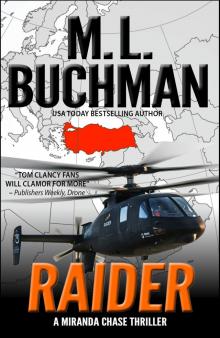 Raider
Raider Havoc
Havoc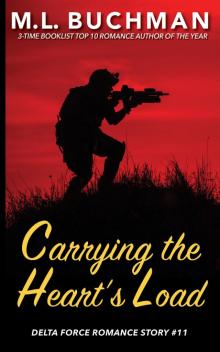 Carrying the Heart's Load
Carrying the Heart's Load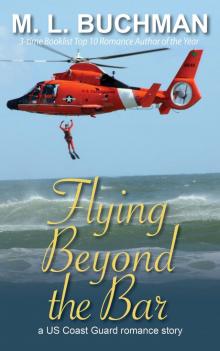 Flying Beyond the Bar
Flying Beyond the Bar Firelights of Christmas
Firelights of Christmas Where Dreams Are Well Done
Where Dreams Are Well Done Nathan's Big Sky
Nathan's Big Sky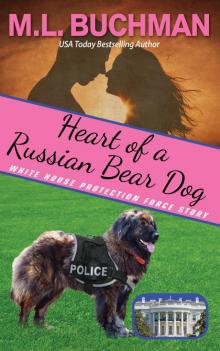 Heart of a Russian Bear Dog
Heart of a Russian Bear Dog Drone: an NTSB / military technothriller (Miranda Chase Book 1)
Drone: an NTSB / military technothriller (Miranda Chase Book 1) Flower of Destiny
Flower of Destiny Drone
Drone Ghostrider: an NTSB-military technothriller (Miranda Chase Book 4)
Ghostrider: an NTSB-military technothriller (Miranda Chase Book 4)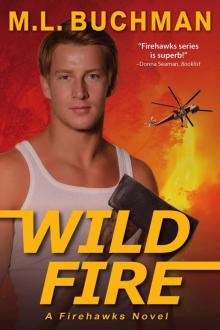 Wild Fire
Wild Fire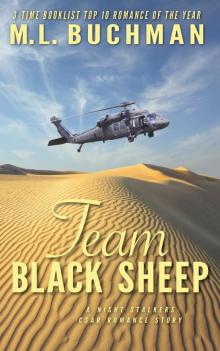 Team Black Sheep
Team Black Sheep The Complete Delta Force Warriors
The Complete Delta Force Warriors At the Quietest Word
At the Quietest Word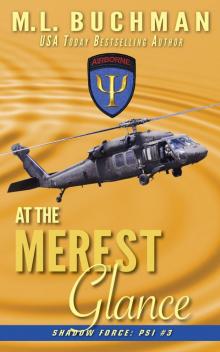 At the Merest Glance
At the Merest Glance Havoc: a political technothriller (Miranda Chase Book 7)
Havoc: a political technothriller (Miranda Chase Book 7) White Top: a political technothriller (Miranda Chase Book 8)
White Top: a political technothriller (Miranda Chase Book 8) Between Shadow and Soul
Between Shadow and Soul Island Christmas
Island Christmas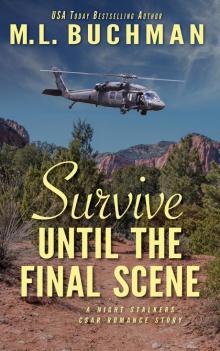 Survive Until the Final Scene
Survive Until the Final Scene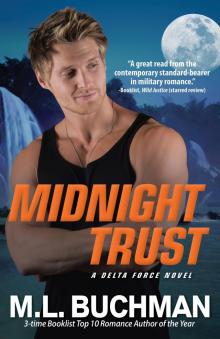 Midnight Trust
Midnight Trust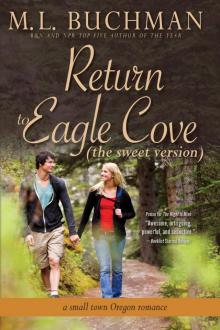 Return to Eagle Cove
Return to Eagle Cove Where Dreams Reside
Where Dreams Reside Honor Flight
Honor Flight Where Dreams Are Sewn
Where Dreams Are Sewn The Complete Hotshots
The Complete Hotshots Condor
Condor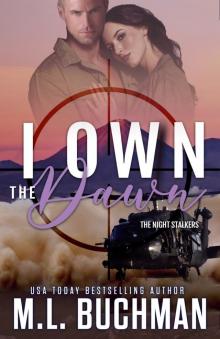 I Own the Dawn
I Own the Dawn Chinook
Chinook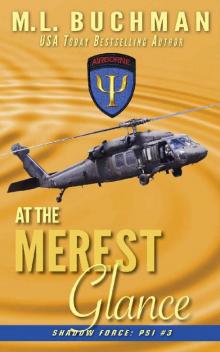 At the Merest Glance: a military paranormal romance (Shadowforce: Psi Book 3)
At the Merest Glance: a military paranormal romance (Shadowforce: Psi Book 3) Since the First Day
Since the First Day Thunderbolt: an NTSB / military technothriller (Miranda Chase Book 2)
Thunderbolt: an NTSB / military technothriller (Miranda Chase Book 2) For Her Dark Eyes Only
For Her Dark Eyes Only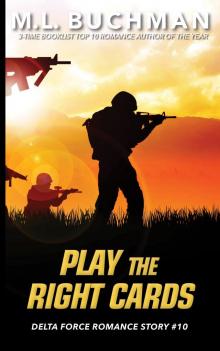 Play the Right Cards
Play the Right Cards Lost Love Found in Eagle Cove
Lost Love Found in Eagle Cove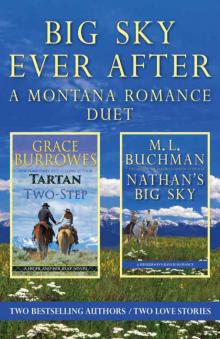 Big Sky Ever After: a Montana Romance Duet
Big Sky Ever After: a Montana Romance Duet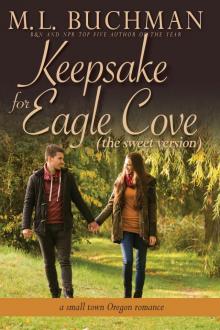 Keepsake for Eagle Cove
Keepsake for Eagle Cove At the Clearest Sensation
At the Clearest Sensation The Ides of Matt 2015
The Ides of Matt 2015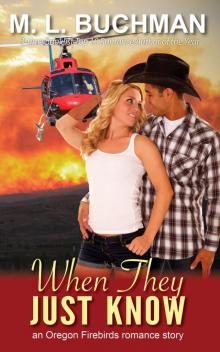 When They Just Know
When They Just Know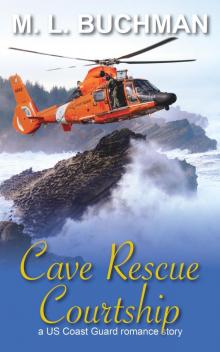 Cave Rescue Courtship
Cave Rescue Courtship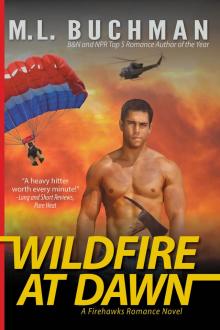 Wildfire at Dawn
Wildfire at Dawn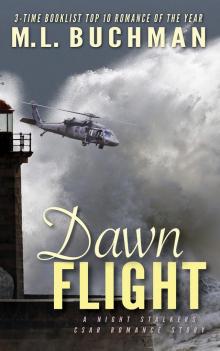 Dawn Flight
Dawn Flight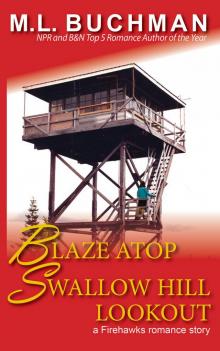 Blaze Atop Swallow Hill Lookout
Blaze Atop Swallow Hill Lookout The Sword of Io
The Sword of Io Christmas at Steel Beach
Christmas at Steel Beach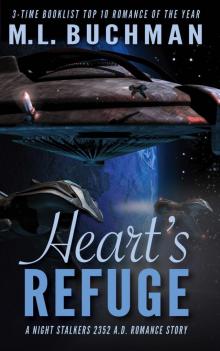 Heart's Refuge
Heart's Refuge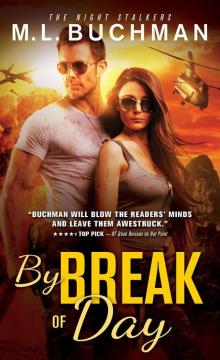 By Break of Day (The Night Stalkers)
By Break of Day (The Night Stalkers)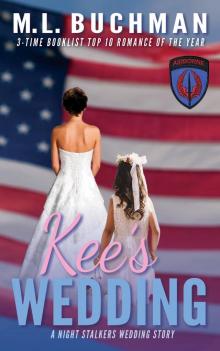 Kee's Wedding
Kee's Wedding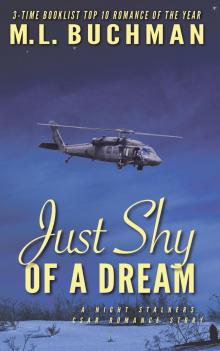 Just Shy of a Dream
Just Shy of a Dream Path of Love
Path of Love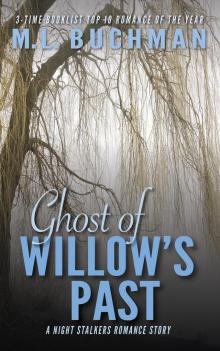 Ghost of Willow's Past
Ghost of Willow's Past Flash of Fire
Flash of Fire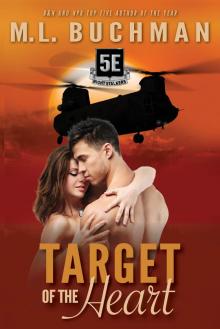 Target of the Heart
Target of the Heart Sound of Her Warrior Heart
Sound of Her Warrior Heart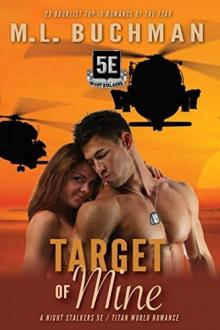 Target of Mine: The Night Stalkers 5E (Titan World Book 2)
Target of Mine: The Night Stalkers 5E (Titan World Book 2) The Complete Where Dreams
The Complete Where Dreams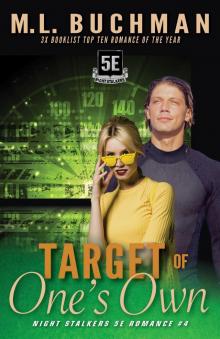 Target of One's Own
Target of One's Own For All Their Days
For All Their Days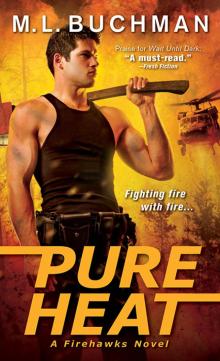 Pure Heat
Pure Heat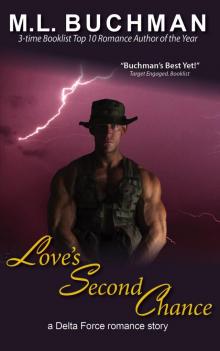 Love's Second Chance
Love's Second Chance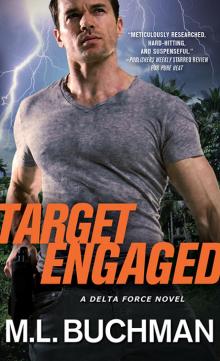 Target Engaged
Target Engaged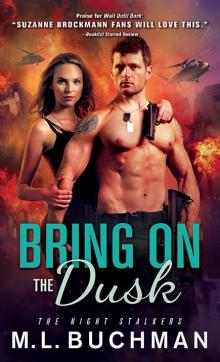 Bring On the Dusk
Bring On the Dusk Wait Until Dark (The Night Stalkers)
Wait Until Dark (The Night Stalkers) Big Sky, Loyal Heart
Big Sky, Loyal Heart Welcome at Henderson's Ranch
Welcome at Henderson's Ranch Damien's Christmas
Damien's Christmas Flight to Fight
Flight to Fight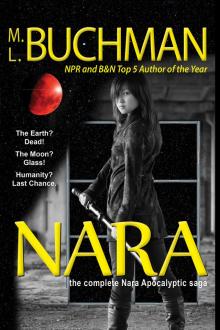 Nara
Nara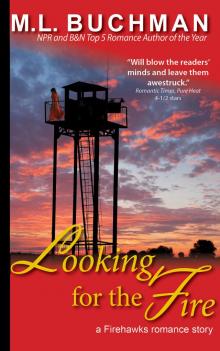 Looking for the Fire
Looking for the Fire Love Behind the Lines
Love Behind the Lines Peter's Christmas
Peter's Christmas In the Weeds
In the Weeds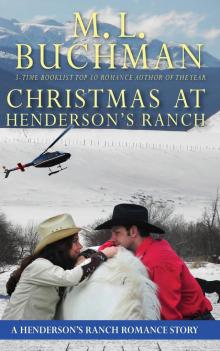 Christmas at Henderson's Ranch
Christmas at Henderson's Ranch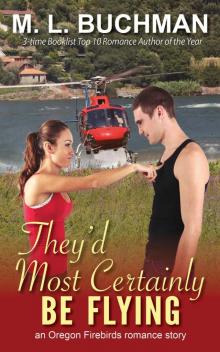 They'd Most Certainly Be Flying
They'd Most Certainly Be Flying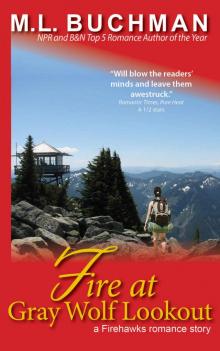 Fire at Gray Wolf Lookout (Firehawks Book 8)
Fire at Gray Wolf Lookout (Firehawks Book 8) Wildfire on the Skagit (Firehawks Book 9)
Wildfire on the Skagit (Firehawks Book 9)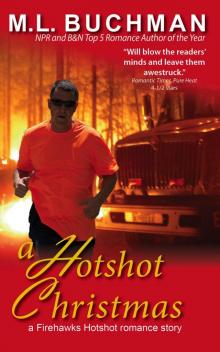 A Hotshot Christmas
A Hotshot Christmas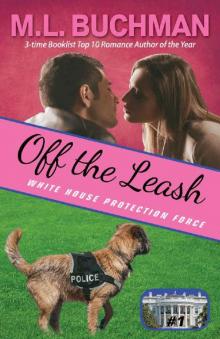 Off the Leash
Off the Leash Where Dreams Books 1-3
Where Dreams Books 1-3 Guardian of the Heart
Guardian of the Heart The Ides of Matt 2017
The Ides of Matt 2017 Where Dreams Unfold
Where Dreams Unfold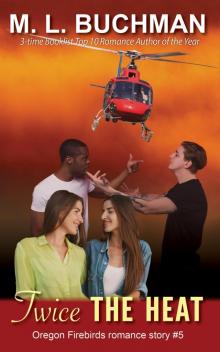 Twice the Heat
Twice the Heat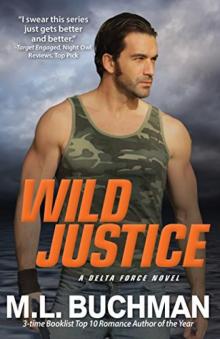 Wild Justice (Delta Force Book 3)
Wild Justice (Delta Force Book 3) Flying Over the Waves
Flying Over the Waves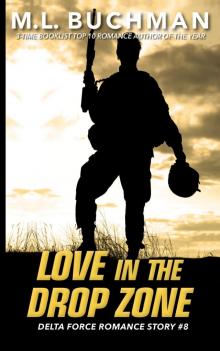 Love in the Drop Zone
Love in the Drop Zone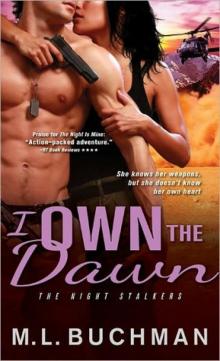 I Own the Dawn: The Night Stalkers
I Own the Dawn: The Night Stalkers What the Heart Holds Safe (Delta Force Book 4)
What the Heart Holds Safe (Delta Force Book 4) The Christmas Lights Objective
The Christmas Lights Objective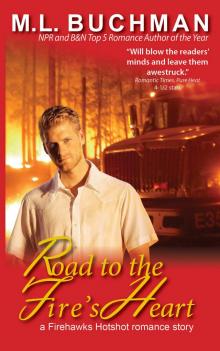 Road to the Fire's Heart
Road to the Fire's Heart Night Rescue
Night Rescue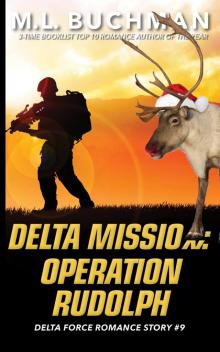 Delta Mission: Operation Rudolph
Delta Mission: Operation Rudolph Full Blaze
Full Blaze Night Is Mine
Night Is Mine Lightning Strike to the Heart
Lightning Strike to the Heart Beale's Hawk Down
Beale's Hawk Down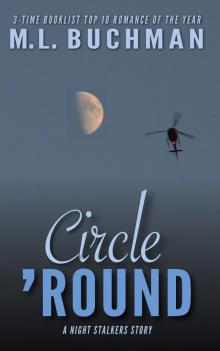 Circle 'Round
Circle 'Round Cookbook from Hell Reheated
Cookbook from Hell Reheated Zachary's Christmas
Zachary's Christmas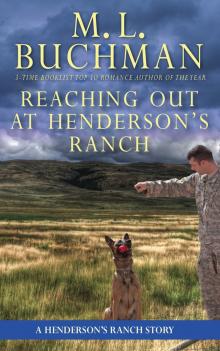 Reaching Out at Henderson's Ranch
Reaching Out at Henderson's Ranch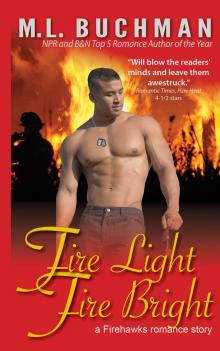 Fire Light Fire Bright
Fire Light Fire Bright The Ides of Matt 2016
The Ides of Matt 2016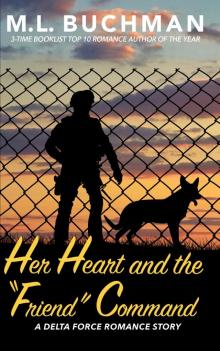 Her Heart and the Friend Command
Her Heart and the Friend Command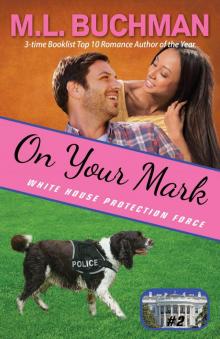 On Your Mark
On Your Mark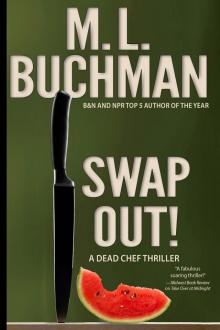 Swap Out!
Swap Out! Heart of the Cotswolds: England
Heart of the Cotswolds: England The Phoenix Agency_The Sum Is Greater
The Phoenix Agency_The Sum Is Greater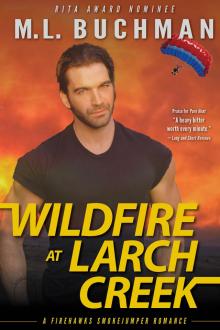 Wildfire at Larch Creek
Wildfire at Larch Creek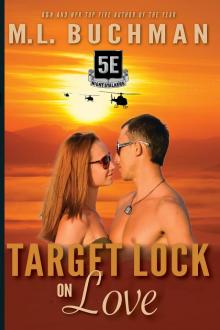 Target Lock On Love
Target Lock On Love Second Chance Rescue
Second Chance Rescue Where Dreams Are Written
Where Dreams Are Written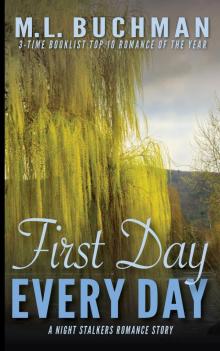 First Day, Every Day
First Day, Every Day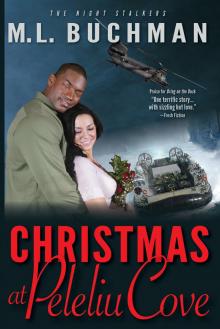 Christmas at Peleliu Cove
Christmas at Peleliu Cove Heart Strike
Heart Strike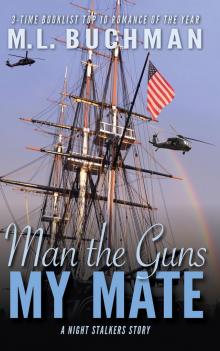 Man the Guns, My Mate
Man the Guns, My Mate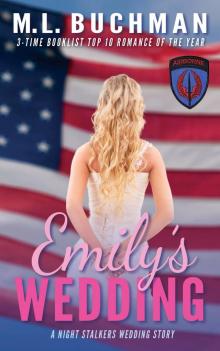 Emily's Wedding
Emily's Wedding Daniel's Christmas
Daniel's Christmas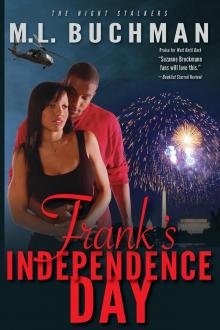 Frank's Independence Day
Frank's Independence Day The Phoenix Agency: The Sum Is Greater (Kindle Worlds Novella)
The Phoenix Agency: The Sum Is Greater (Kindle Worlds Novella)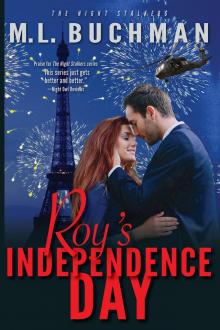 Roy's Independence Day
Roy's Independence Day